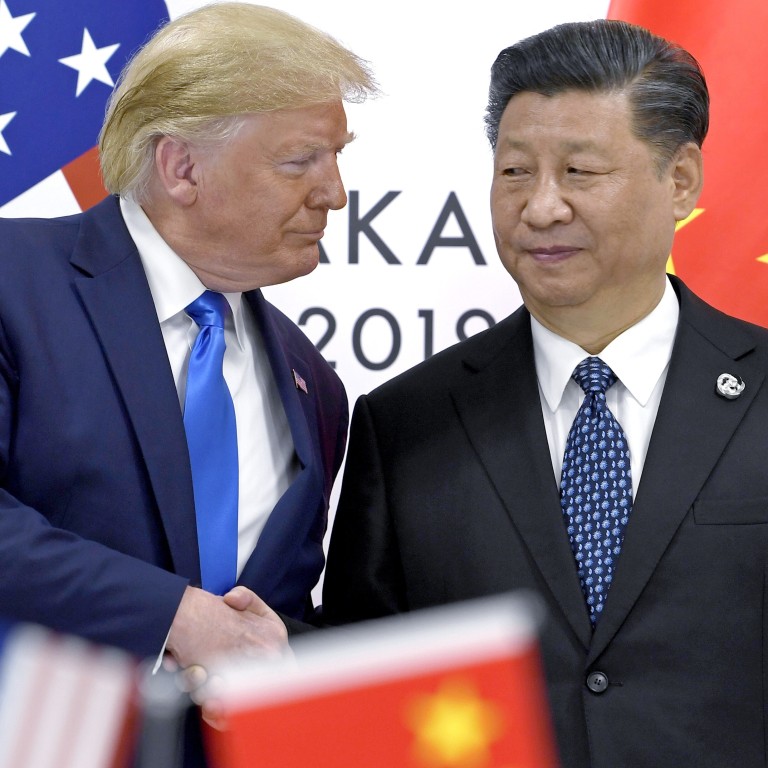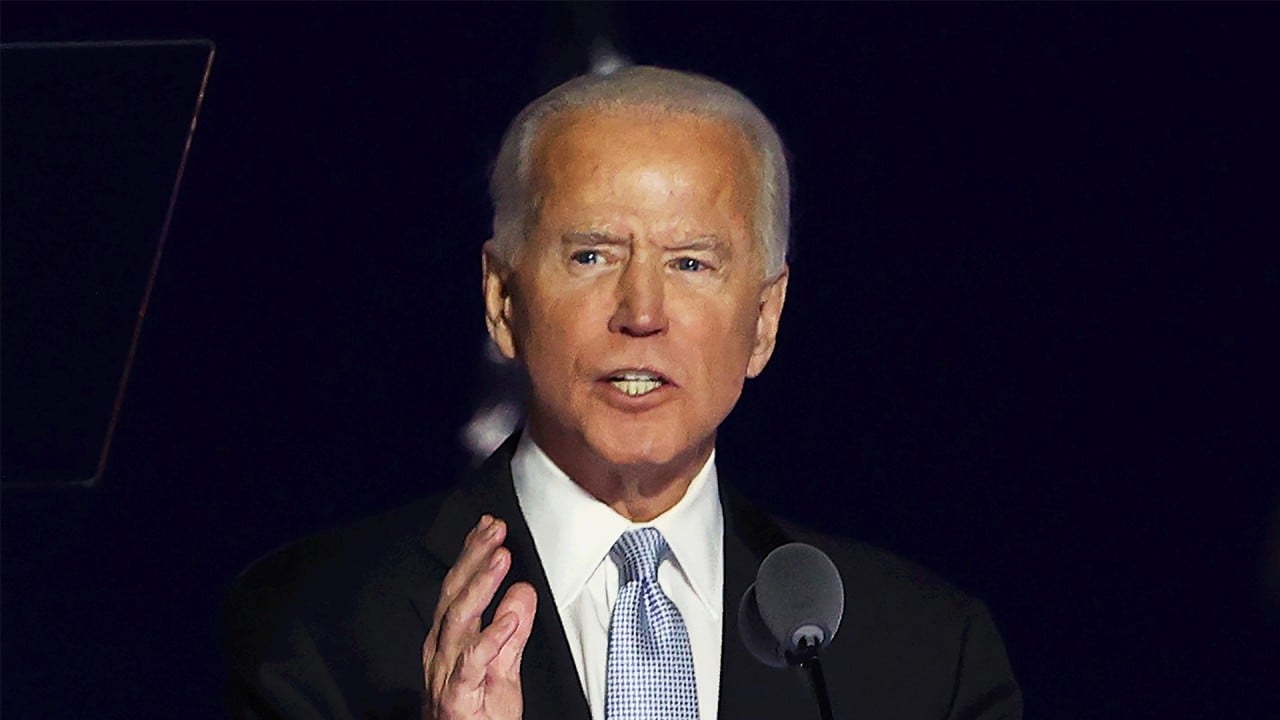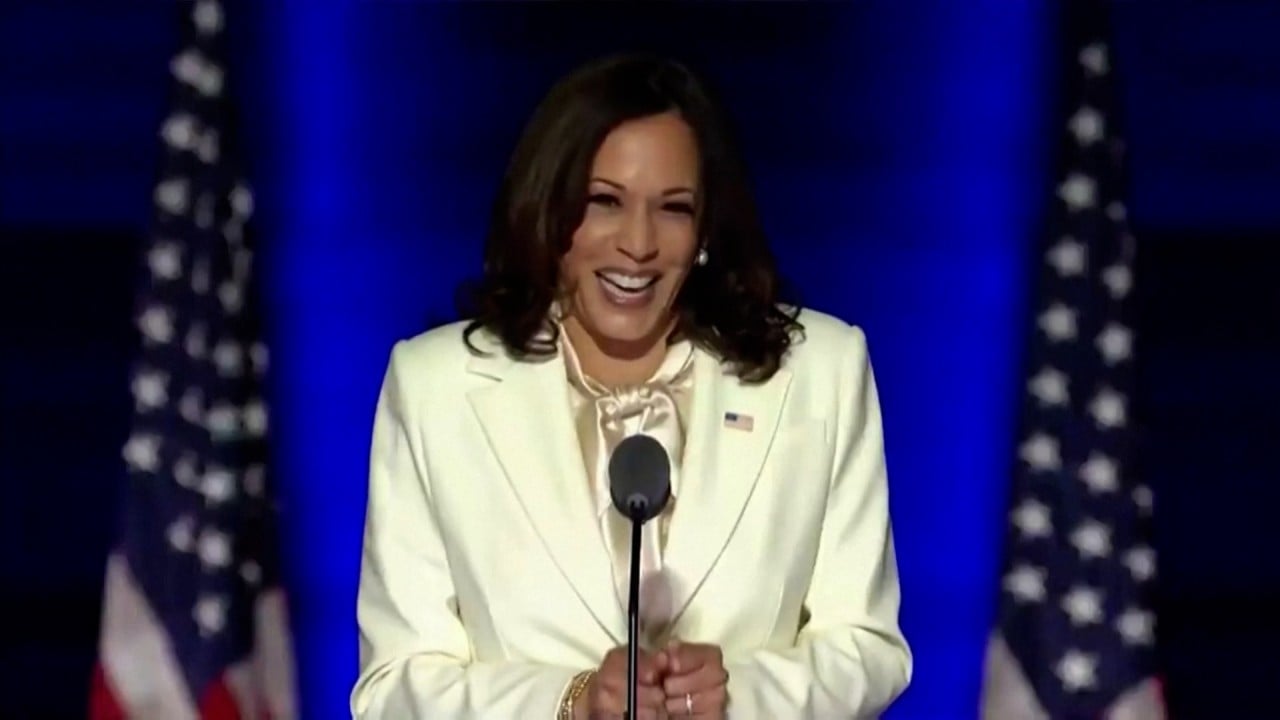
After Joe Biden election win, China will seek to renegotiate trade deal, Beijing advisers say
- Donald Trump’s phase one trade deal seen as ‘twisted’ in Beijing, leading insiders to predict an attempt at renegotiation under Joe Biden
- But US trade experts say it is unlikely Biden can do anything that could be construed as being soft on China
Joe Biden’s US election victory will encourage China to try and renegotiate Donald Trump’s trade deal, viewed in Beijing as being “twisted” in Washington’s favour, according to advisers to the Chinese government.
Shi Yinhong, an adviser to China’s State Council, effectively the country’s cabinet, said Beijing would see it as in its interests to reduce the heavy import targets and reduce tariffs on exports to the United States.
Biden will sooner or later launch a renegotiation of the trade deal, as the current deal is unrealistic
“Biden will sooner or later launch a renegotiation of the trade deal, as the current deal is unrealistic. A renegotiation is also in line with China’s wishes,” Shi said, adding that Beijing would expect Biden to seek more structural changes in any renegotiation.
“The incoming Biden administration will probably take a tougher stance on Hong Kong, Taiwan, Xinjiang, South China Sea, other human rights issues, and the alleged Chinese intelligence activities in the US,” he said.
In his first address as president-elect on Saturday, Biden indicated he would immediately reverse Trump’s decision to leave the Paris climate agreement and the World Health Organization, which could open the door for better cooperation with China, advisers said.
“Joe Biden is from the establishment circle, he is experienced in handling international relations and he also understands multilateralism. He will be rational,” said Wang Huiyao, president of the Centre for China and Globalisation, a Beijing think tank, and an adviser to the central government.

05:58
Joe Biden declares ‘clear victory’ after tight US 2020 presidential race
Yu Wanli, a Beijing-based expert on US-China relations, said China would “definitely” seek to renegotiate the “twisted” trade deal, but acknowledged Biden would probably use it as a bargaining chip to get concessions on issues like intellectual property (IP) protection and human rights.
“It is possible for China to pledge more IP protections of US companies and further open its financial market, but China might not compromise in areas like protection of labour rights and human rights,” Yu said.
Benjamin Kostrzewa, a Hong Kong-based trade lawyer at Hogan Lovells and a former Obama-era staffer in the Office of the United States Trade Representative (USTR), said Biden would be under immense pressure to maintain a strong trade stance against China, making significant shifts in current US policies towards China unlikely in the early months.
“A Biden administration is likely to conduct a strategic review of the Trump administration’s trade and investment policies to determine which ones are working to strengthen the United States and which ones are not,” he said.
“Policies that are determined to not be helpful could be the basis for future trade negotiations with China on areas such as market access, IP protection, and other priorities.”
Stephen Olson, a former USTR trade negotiator and now a research fellow at the Hinrich Foundation, said there would be “very little” political room for Biden to renegotiate the phase one agreement to make it easier on China given all the tough rhetoric about China during the campaign. Otherwise, it would validate Trump’s claims that Biden was soft on China.
“Trade issues will not be the highest priority for the incoming Biden administration,” he said. “He has made it clear that he wants to make investments in US workers before undertaking any new trade agreements. And of course the number one priority will be the coronavirus pandemic.”

10:28
Kamala Harris full speech: 'I won't be the last' says first woman elected US vice-president
Many are watching to see whether China will stick to the terms of the deal under new White House stewardship. While its purchases of US farm goods ratcheted up in the run up to the election, China is still not close to achieving its import targets for 2020.
At the end of September, it was only on track to meet 54 per cent of its purchase targets, US customs data showed.
While it ramped up imports of soybeans, corn and pork since the summer months, China is on track to meet just 65 per cent of agricultural purchase targets this year.

